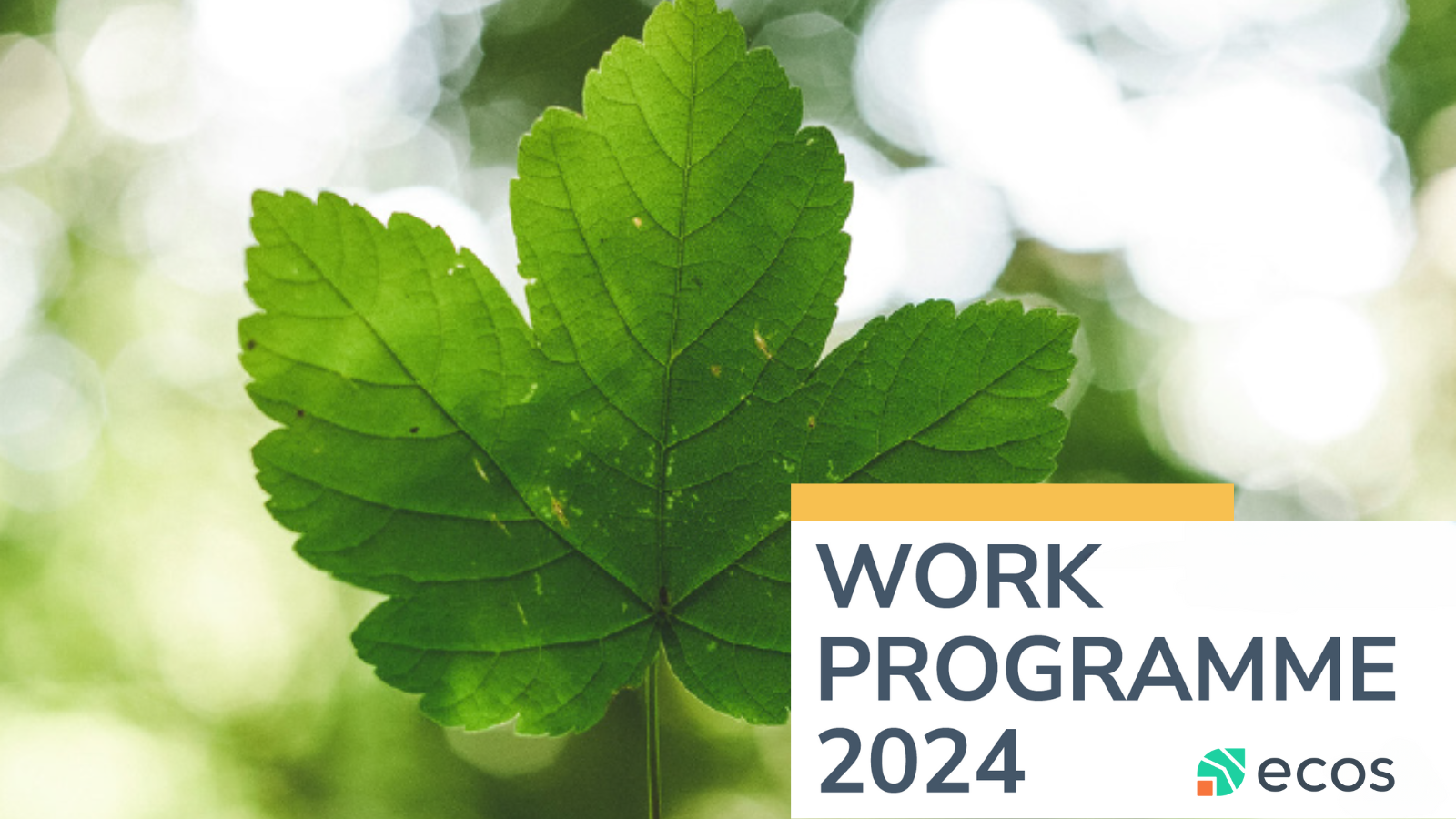What’s in store for 2024? Take a look at our Work Programme!
The UN has declared 2021-2030 as the Decade of Ecological Restoration. The science has never been clearer: the time to step up for nature, biodiversity, and humanity is now. And this means wasting no time in putting into place an ambitious pathway to transform our societies and economies so that they operate in harmony with nature.

In 2024, we will need to create momentum for ambitious political decisions, providing a window of opportunity to tackle the triple planetary crisis: climate change, pollution and biodiversity loss. We need fundamental, systemic changes to the way we consume and produce if we are to reduce the massive pressure we are placing on our planetary boundaries.
Solutions exist and are attainable – but we have no time to lose. Moving away from fossil fuels, greening industrial processes, making sustainable products the norm, and efficiently guiding our markets towards best practices – all of the above will set us on the path to meeting our climate goals and, more broadly, to sustainability. In 2024, ECOS will work towards these priorities, and our activities will be guided by two key principles: sufficiency and impact.
Sufficiency, because we need to drastically reduce the environmental footprint of our societies and start restoring nature. Impact, because we strongly believe that environmental organisations such as ECOS must continue to strengthen their influence, including at national and international level, to bring us closer to real change.
As the only environmental NGO at the table where standards are developed, ECOS is perfectly placed to drive, define and assess how to drastically improve the environmental sustainability of key sectors and products. We will rely on our unique position and expertise to deliver on the green transition – one where environmentally ambitious policies are supported by robust standards, serving the environment, and protecting our planet.


